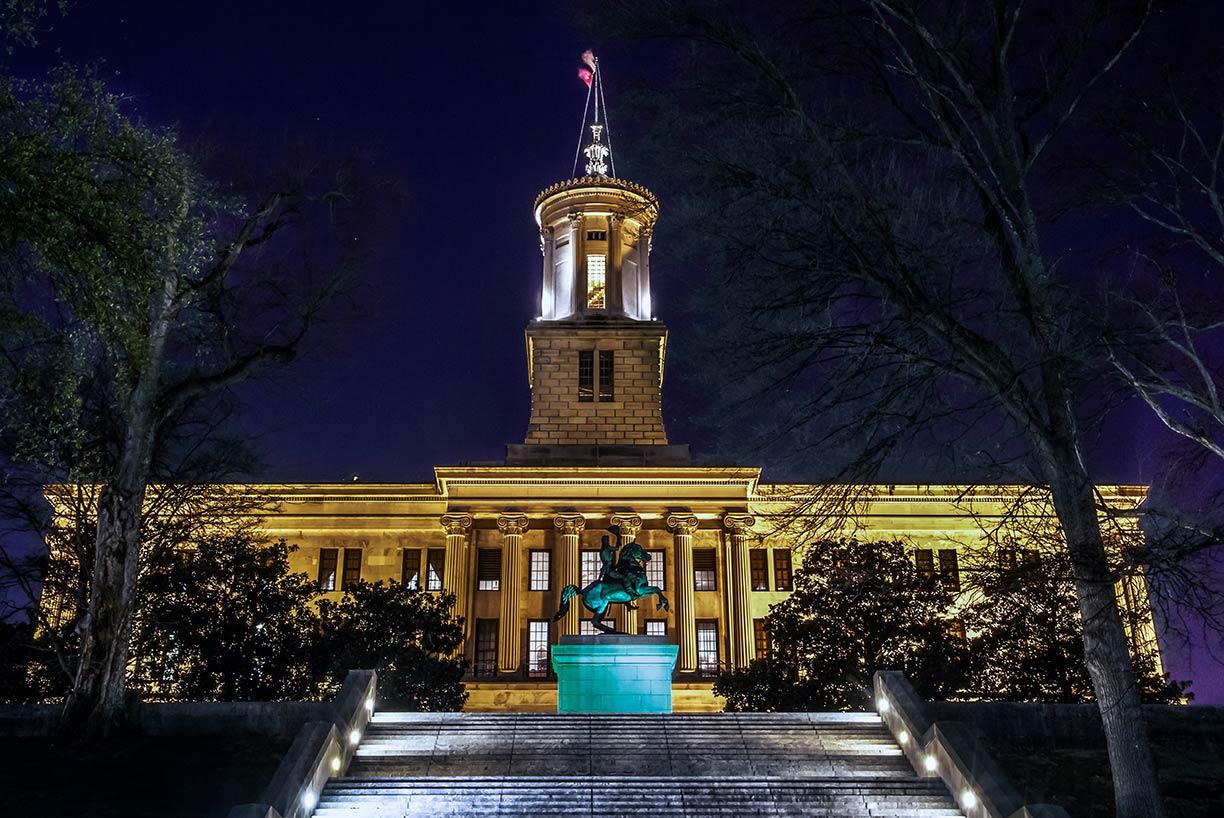
2023 Budget Hearings Roundup
It is that time of year, where the heads of Tennessee state departments come Cordell Hull to present their proposed budget for the coming year. Each year, the Governor and his cabinet hear about the past years’ highlights from Department heads, and learn about their priorities and funding requests for the coming year. The Governor and his team then consider these requests, as well as the State’s budget and finances, and construct their own, more formal budget proposal that they describe to release during the annual State of the State.
Last year, the state once again increased its annual budget by about $3 billion over its 2022 budget, to a high of $19.5 billion. This included both recurring funding (obligated every year) and one-time funding (for example, for the new Titans stadium. Even on top of these increases, the state hauled in a 4th consecutive year of multi-billion dollar revenue surplus. In other words, the state has been spending more and earning more over the last half-decade or so. Some of this surplus came in addition to billions in federal funding related to the pandemic, which ended during the last year.
Thus far in 2024, however, the state is currently running a projected budget deficit. The state is currently running about $100 million in revenue behind budget projections, indicating that the years-long run of state budget surpluses may be coming to an end. This is in part to legislation last session that cut about $400 million in taxes for businesses, as well as an extended grocery tax holiday.
The shortage this year, combined with some increases in long-term recurring spending (teacher pay, for example), make it likely that this year’s budget proposal will be modest by comparison, and perhaps even including cuts to spending. This is the context in which the state’s Department leaders came to the table to convey their budget proposals.
TennCare
As always, TennCare highlighted their long-term spending reductions as a portion of the state budget, attempting to demonstrate their fiscal responsibility of the state’s Medicare and Medicaid agency.
Noted highlights from the last year:
- Adult dental benefit
- Postpartum coverage extension to 12 months
- Increased participation in ECF CHOICES and CHOICES waiver programs
- Health Starts initiative
- TennCare also noted $300 million in “shared savings” through its TennCare III waiver. Their presentation does not highlight the source of these “savings”, nor what will happen with those funds.
TennCare also made the following budget increase requests:
- Recurring funds to cover increased inflation and utilization
- Almost $17 million to service ECF CHOICES “crisis population” and to reduce the CHOICES waiting list
- $5.45 million for Dental provider rate increases
- $1.58 million for rate increases for “certain long-term services and supports”
- $2.4 million for rate increases for HCBS DSP’s
- $25 million for upgrades to the Medicaid Management Information System (nonrecurring)
- $12.3 million for Head Starts Initiative (nonrecurring)
Department of Intellectual and Developmental Disabilities
DIDD made note of their first-in-the-nation expansion of its early intervention service (TEIS) to age 5, highlighting increased participation over the past 7 years. The department also explained the TN START Assessment and Stabilization teams, as well as the status of Katie Beckett participation.
DIDD made the following budget increase requests:
- $2.3 million for provider rate increases
- $3.8 million for TEIS therapy reimbursement rates
- $1.5 million for TN START
- $5 million for DSP wage increases
- $1 million for a respite grant (nonrecurring)
- $9 million for Inclusive and Accessible Facility and Equipment grants (nonrecurring)
Department of Health
DOH representatives lavished praise on Governor Lee’s recent commitments to health-related initiatives operated with in the Department of Health. This included big investments in recurring funds to the Health Care Safety Net. The Health Care Safety Net provides some types of care for Tennesseans without insurance through a network of health care providers. This is especially important in the absence of Medicaid expansion.
Other noted highlights from 2023:
- $94.4 million for the Dental Pilot Program
- $5.2 million for the Rural Health Task Force
- $10 million for the Aging in Place Initiative
- $2.2 million for increased access to cancer screenings
DOH made the following budget increase requests:
- $5 million increase for Health Safety Net
- $3 million Nutritional Security and Health Resiliency Initiative
- $18 million for year 3 of Dental Services Pilot (nonrecurring)
- $5.2 million for year 1 of Rural Health Task Force (nonrecurring)
Mental Health and Substance Abuse Services
MHSAS highlighted some of the impacts from recent big investments in the mental health and substance use disorder space. This included 1,600 housing units for recovery and prison re-entry housing, as well as almost 2,500 supported employment opportunities. The MHSAS representatives also highlighted the addition of 274 behavioral health liaisons serving nearly 65,000 Tennessee students.
- $3 million for recovery housing (FY 20)
- $3.6 million for re-entry housing (FY 22)
- $4 million for behavioral health liaisons
MHSAS made the following budget increase requests:
- $15.3 million for inflationary provider rate increases
- $8 million for behavioral health liaisons
- $14 million for residential treatment housing
- $30 million for Children and Youth Crisis Stabilization/Walk-In Center Expansion (nonrecurring)
Next up:
In late January or early February, the Governor will propose his own budget and ask the General Assembly to pass necessary legislation to appropriate funds. However, the ultimate budgeting authority comes from the legislature, who may or may not fund the Governor’s proposal, as well as the laws they pass themselves.